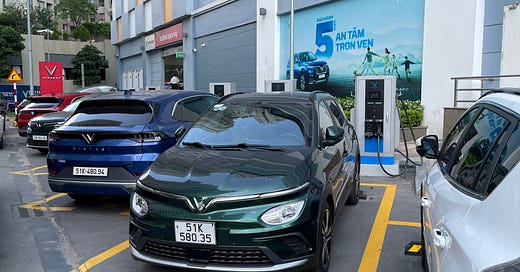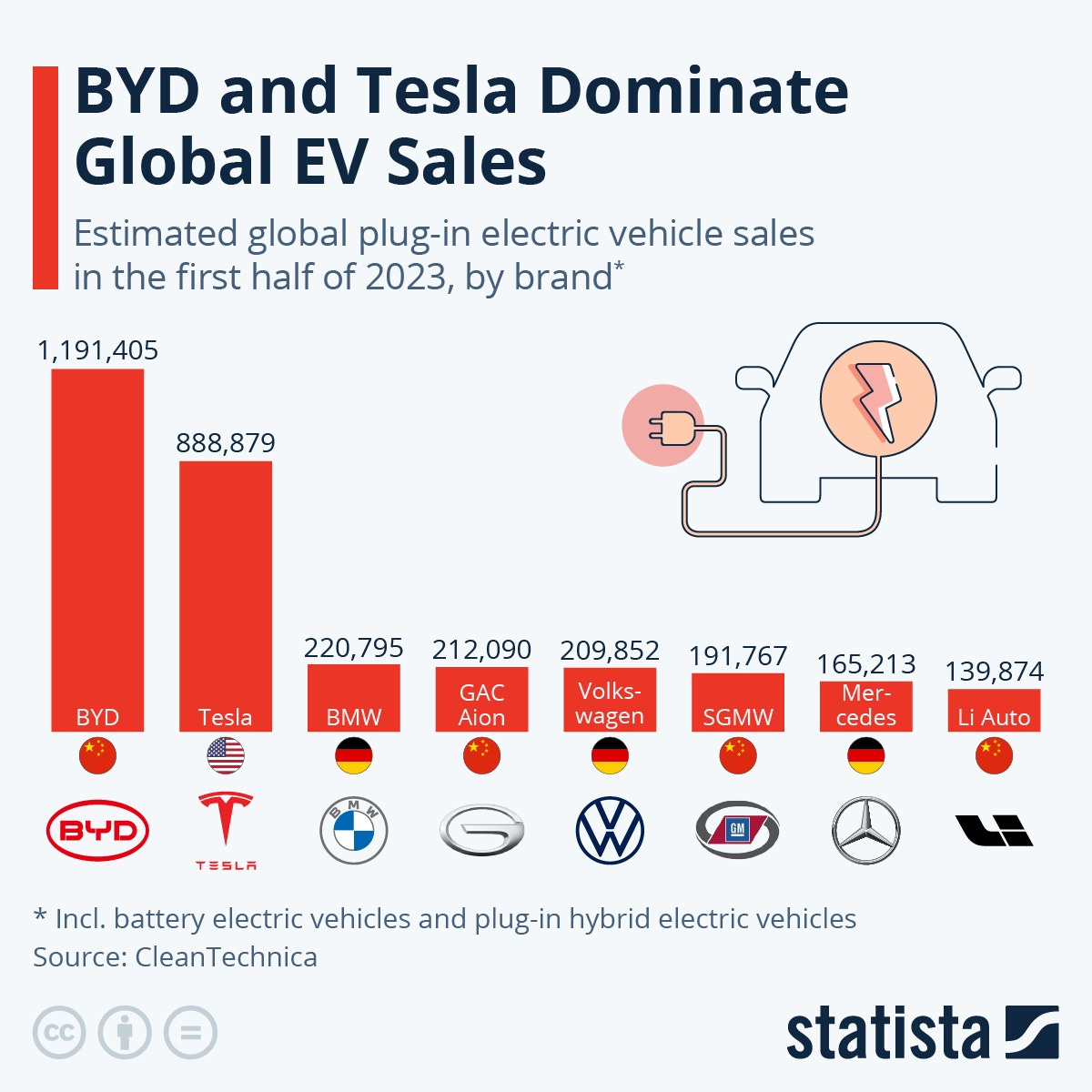Good afternoon! Welcome to the latest edition of the Vietnam Weekly, written by Ho Chi Minh City-based reporter Mike Tatarski. Today’s newsletter is exclusively for paying subscribers, and these articles are published once a week, in addition to the Friday recaps that are always free to read.
If you haven’t already upgraded to become a paid supporter of the newsletter, you can do so below. Group subscriptions - perfect for embassies, consulates, and office - are also available at a generous 30% discount per person.
Today’s issue wades into the thorny, complicated electric vehicle (EV) market, a topic that warrants a whole series of articles, to be honest. I don’t have space to discuss every facet of this issue, even just within Vietnam, but I am fascinated to see how BYD does here.
A quick recommendation - if you want more on EVs globally with an emphasis on Chinese EV companies, check out Tu Le’s great Sino Auto Insights newsletter.
On to the news.
Vietnam’s electric vehicle (EV) market is about to get a whole lot more interesting. VinFast’s dominance will face a stern test from BYD, the Chinese company that is the world’s largest EV maker.
On July 18, BYD - short for Build Your Dreams - will begin selling three fully electric models in Vietnam: the Atto 3, Dolphin, and Seal.
BYD is a dominant force internationally, even without being present in the United States, the world’s largest car market - a reality that won’t change anytime soon thanks in part to the 100% tariff President Joe Biden recently placed on Chinese EVs.
It’s worth noting that some BYD models are plug-in hybrids, so the company is not a pure electric brand like Tesla (or VinFast).
That’s not a negative, and BYD’s growth in recent years has been breathtaking: since 2021 it has launched in 52 markets, though not all have been successful thus far.
According to this excellent Rest of World feature on the company, sales outside of China accounted for just 7% of BYD’s sales in July 2023 - while Tesla’s non-U.S. sales made up about 60% of its sales at the same time.
Thailand has been a notable success for BYD, with the fully electric Atto 3 rapidly becoming the best-selling EV there last year shortly after launching in late 2022.
The carmaker plans to begin EV production at its new factory in Rayong, Thailand next quarter, with a capacity of up to 150,000 EVs annually.
BYD has floated the possibility of building a factory in Vietnam - specifically Phú Thọ Province - but Reuters reported in March that this plan was paused. The carmaker, for its part, hasn’t said anything publicly.
Either way, BYD is coming soon - what might this mean for VinFast, and EVs in Vietnam more broadly?




